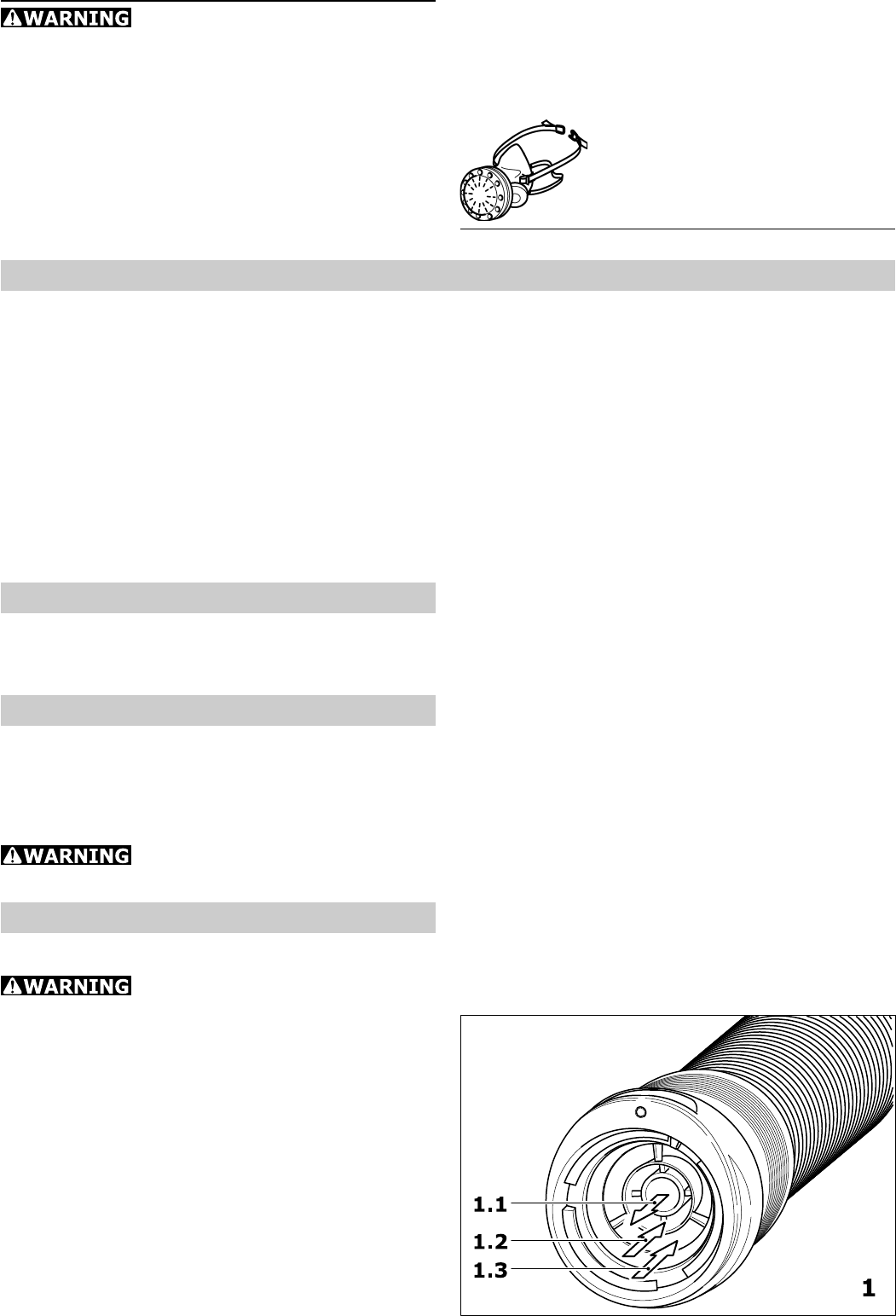
3
Symbols
n
0
no load speed (revolutions)
rpm revolutions per minute
opm orbits per minute
Use for intended purpose
As specified, the machines are designed for
sanding wood, plastic, metal, stone, composite,
paintwork, filler and similar materials. Material
containing asbestos must not be processed with
these tools.
The user is liable for any damage
and injury resulting from incorrect usage!
Functional description
Connection and start-up
Make sure that the pneumatic
tool is switched off when you connect the
compressed-air supply.
Compressed-air treatment
The Festool service unit should always be used
to ensure that Festool pneumatic tools function
correctly. Consisting of a filter, control unit,
condensation drain and lubricator, the service
unit cleans and lubricates the compressed air
and keeps it free of condensation.
For thios tool, the lubricator should be set so
that a drop is applied to the compressed air
approx. every 7-10 minutes.
Damage that occurs as a result of incorrect
compressed-air treatment is excluded from
warranty claims.
We recommend a service unit with a 3/8"
connector for up to two Festool pneumatic tools.
The compressor used to supply the compressed
air should supply at 20 cfm and an operating
pressure of 87 psi. The diameter of the piping
system must be sufficiently large (at least 9mm
/ 1/2).
IAS 2 hose connector
The eccentric sander is a pneumatic tool for
connection to the Festool IAS 2 system.
This hose system combines three functions in
one hose:
- Compressed air supply (1.1)
- Exhaust air extraction (1.2)
- Dust extraction (1.3)
Technical data
Sanding pad diameter: - LEX 2 150 150 mm / 6
- LEX 2 185 185 mm / 7
Drive Compressed-air vane motor
Operating pressure (flow pressure) 87 psi
No load speed 4,000 - 8,000 rpm
Orbits per minute 8,000 - 16,000 opm
Sanding stroke: - LEX 2 150/3 3 mm
- LEX 2 150/7, LEX 2 185/7 7 mm
Air consumption at nominal load 14 cfm
Weight: - LEX 2 150 1.3 kg / 2.8 lbs
- LEX 2 185 1.4 kg / 3 lbs
Various dust created by power sanding, sawing,
grinding, drilling and other construction activities
contains chemicals known (to the State of
California) to cause cancer, birth defects or other
reproductive harm. Some examples of these
chemicals are:
lead from lead-based paints,
crystalline silica from bricks and cement and
other masonry products, and
arsenic and chromium from chemically-treated
lumber.
The risk from these exposures varies, depending
on how often you do this type of work.
To reduce your exposure to these chemicals:
Work in a well ventilated area,
and work with approved safety
equipment, such as dust masks
that are specially designed to
filter out microscopic particles.


















